
Guwahati: The Gateway to Northeast India
Guwahati, the largest city in the Indian state of Assam, serves as the gateway to the enchanting northeastern region of India. Nestled on the banks of the mighty Brahmaputra River, Guwahati is a unique blend of ancient history and modern urban life. The city's rich cultural heritage, vibrant markets, and scenic landscapes make it a must-visit destination for travelers. One of the highlights of Guwahati is the revered Kamakhya Temple, an important pilgrimage site for Hindus. The temple, perched on the Nilachal Hill, offers not just spiritual solace but also breathtaking views of the city and the Brahmaputra River. For nature lovers, the Assam State Zoo and Botanical Garden provide a serene escape with their diverse flora and fauna. Guwahati's bustling markets, like Fancy Bazaar and Paltan Bazaar, are perfect for picking up local handicrafts, silk sarees, and traditional Assamese jewelry. Meanwhile, the River Cruise on the Brahmaputra offers a unique way to view the city, especially during sunset. The cuisine in Guwahati is another delight; don’t miss out on trying traditional Assamese dishes like fish tenga and pithas. For those interested in history, the Assam State Museum and the Umananda Temple, located on Peacock Island in the middle of the Brahmaputra, offer glimpses into the region's past. The city's vibrant festivals, including Bihu, add another layer to its rich cultural tapestry. Guwahati is not just a city but an experience that offers something for every traveler.
Local tips in Guwahati
- Visit Kamakhya Temple early in the morning to avoid the crowds and enjoy the serene atmosphere.
- Explore Fancy Bazaar for unique souvenirs and traditional Assamese products.
- Take a sunset cruise on the Brahmaputra River for stunning views and a relaxing experience.
- Try local Assamese cuisine like fish tenga and pithas at one of the city's many traditional restaurants.
- Plan your visit during the Bihu festival to experience the vibrant local culture and festivities.
Neighbourhoods in Guwahati
Guwahati: The Gateway to Northeast India
Guwahati, the largest city in the Indian state of Assam, serves as the gateway to the enchanting northeastern region of India. Nestled on the banks of the mighty Brahmaputra River, Guwahati is a unique blend of ancient history and modern urban life. The city's rich cultural heritage, vibrant markets, and scenic landscapes make it a must-visit destination for travelers. One of the highlights of Guwahati is the revered Kamakhya Temple, an important pilgrimage site for Hindus. The temple, perched on the Nilachal Hill, offers not just spiritual solace but also breathtaking views of the city and the Brahmaputra River. For nature lovers, the Assam State Zoo and Botanical Garden provide a serene escape with their diverse flora and fauna. Guwahati's bustling markets, like Fancy Bazaar and Paltan Bazaar, are perfect for picking up local handicrafts, silk sarees, and traditional Assamese jewelry. Meanwhile, the River Cruise on the Brahmaputra offers a unique way to view the city, especially during sunset. The cuisine in Guwahati is another delight; don’t miss out on trying traditional Assamese dishes like fish tenga and pithas. For those interested in history, the Assam State Museum and the Umananda Temple, located on Peacock Island in the middle of the Brahmaputra, offer glimpses into the region's past. The city's vibrant festivals, including Bihu, add another layer to its rich cultural tapestry. Guwahati is not just a city but an experience that offers something for every traveler.
When is the best time to go to Guwahati?
Iconic landmarks you can’t miss
Assam State Zoo cum Botanical Garden
Explore the Assam State Zoo cum Botanical Garden, a serene oasis in Guwahati showcasing diverse wildlife and stunning botanical beauty.
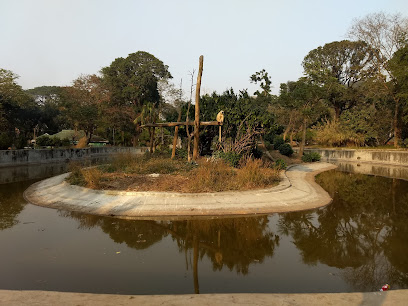
Maa Kamakhya Temple
Experience spirituality and rich cultural heritage at the Maa Kamakhya Temple, a revered Hindu shrine in Guwahati, Assam.
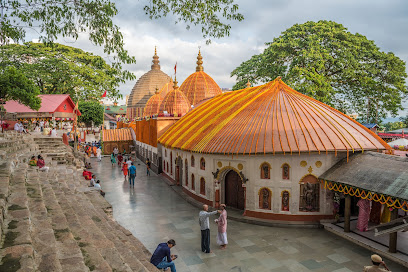
Srimanta Sankaradeva Kalakshetra
Explore the rich heritage of Assam at Srimanta Sankaradeva Kalakshetra, a cultural center featuring museums, performances, and stunning architecture.
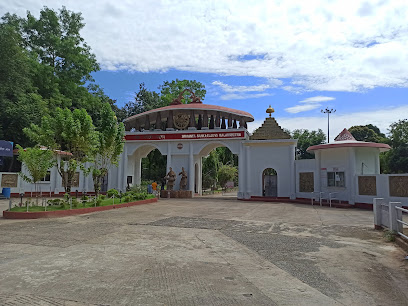
Nehru Park
Explore the serene beauty of Nehru Park, a lush green escape in Guwahati, perfect for relaxation, picnics, and cultural experiences.
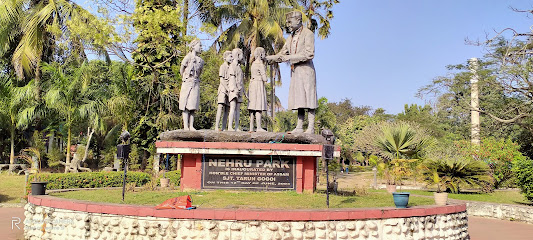
Shraddhanjali Kanan
Explore the tranquil beauty of Shraddhanjali Kanan, a lush park in Guwahati, ideal for relaxation, picnics, and cultural experiences amidst nature.
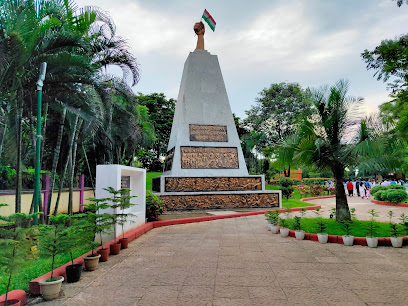
Accoland
Experience the ultimate water adventure at Accoland in Assam, featuring thrilling slides, relaxing pools, and family-friendly attractions.
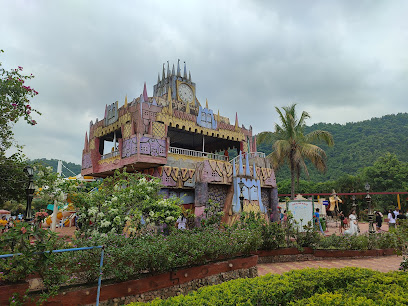
Assam State Museum
Discover the rich heritage of Assam at the Assam State Museum, a cultural haven showcasing the region's history, art, and traditions.
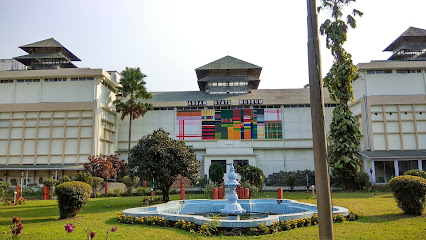
Dighalipukhuri Park
Discover the scenic beauty and tranquil ambiance of Dighalipukhuri Park in Guwahati, a perfect escape for nature lovers and tourists.
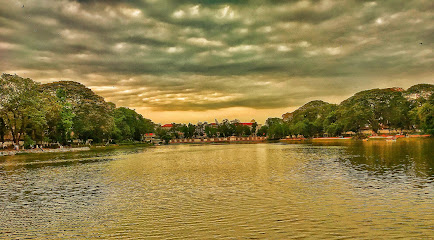
Purva Tirupati Sri Balaji Temple
Experience the divine tranquility and stunning architecture of Purva Tirupati Sri Balaji Temple in Guwahati, a must-visit spiritual destination in Assam.
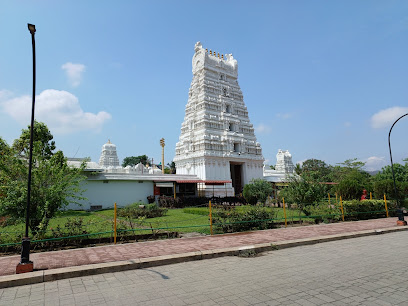
Sri Umananda Temple
Discover the tranquil charm of Sri Umananda Temple on Umananda Island, where spirituality meets stunning natural beauty in Guwahati, Assam.
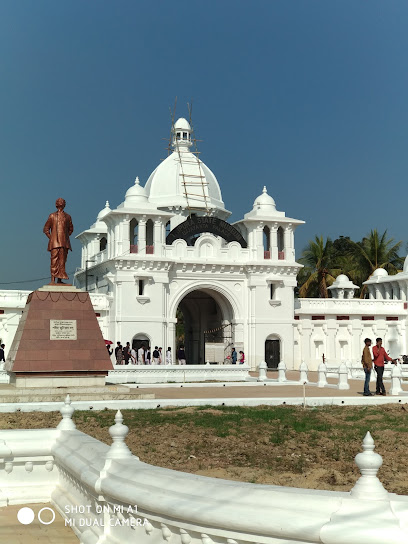
Brahmaputra River Heritage Centre
Discover the cultural and ecological significance of the Brahmaputra River at the Heritage Centre in Guwahati, a must-visit for every traveler.
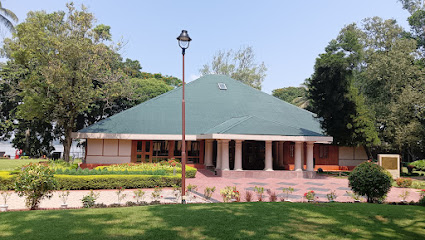
Dr. Bhupen Hazarika Samadhi Kshetra
Explore the serene Dr. Bhupen Hazarika Samadhi Kshetra in Guwahati, a memorial park celebrating the legacy of Assam's musical legend amidst lush surroundings.
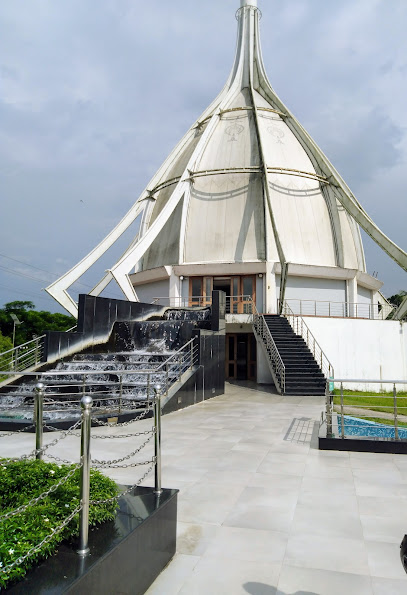
Gandhi Mandap
Explore the historical Gandhi Mandap in Guwahati, a serene tribute to peace with stunning views of the Brahmaputra and rich cultural significance.
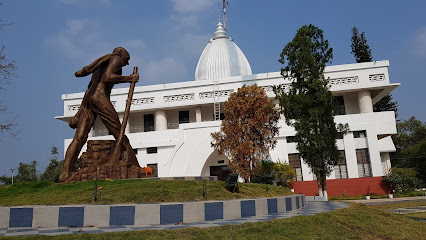
Deepar Beel Wildlife Sanctuary
Discover the rich biodiversity and stunning landscapes of Deepar Beel Wildlife Sanctuary, a premier haven for bird watchers and nature lovers in Assam.
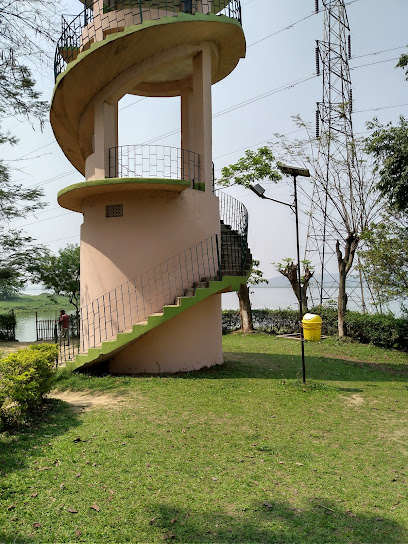
ISKCON Guwahati
Explore ISKCON Guwahati, a stunning Hindu temple known for its rich architecture, vibrant festivals, and serene atmosphere in the heart of Assam.
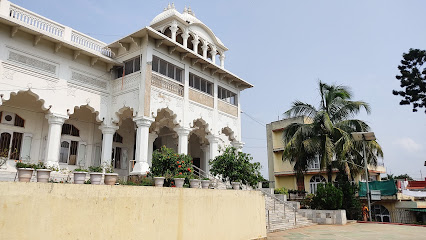
Unmissable attractions to see
Assam State Zoo cum Botanical Garden
Explore diverse wildlife and serene flora at Guwahati's largest zoo and botanical garden, a conservation hub in Northeast India.
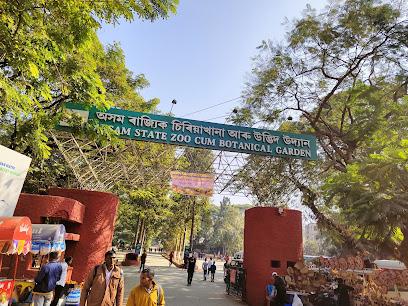
Srimanta Sankaradeva Kalakshetra
Explore Assam's vibrant culture and traditions at Srimanta Sankaradeva Kalakshetra, a tribute to the region's rich heritage and artistic excellence.
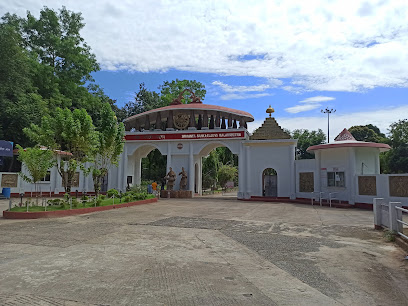
Nehru Park
Discover a peaceful retreat in the heart of Guwahati with lush gardens, cultural sculptures, and family-friendly attractions.
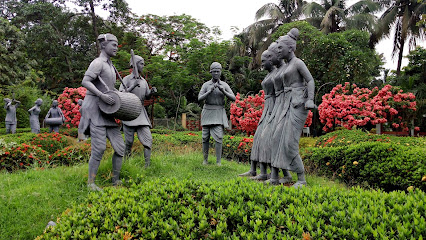
SCIENCE MUSEUM, Khanapara Guwahati
Explore interactive science exhibits, 3D shows, and a prehistoric park at Guwahati's Regional Science Centre. A fun and educational experience for all ages!
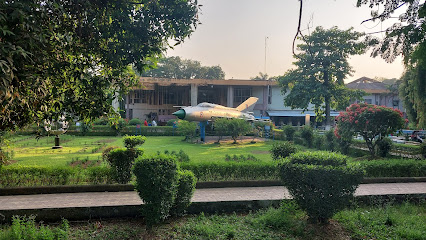
Shraddhanjali Kanan
A serene memorial park in Guwahati with lush greenery, musical fountains, and recreational activities for a peaceful escape.
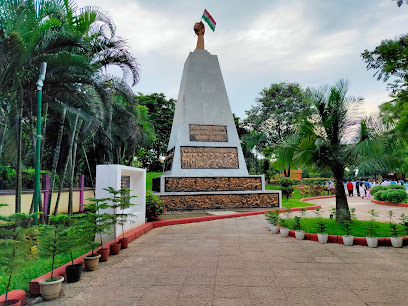
Accoland
Experience thrilling rides and aquatic adventures at Accoland, Guwahati's top amusement and water park for family fun and excitement.
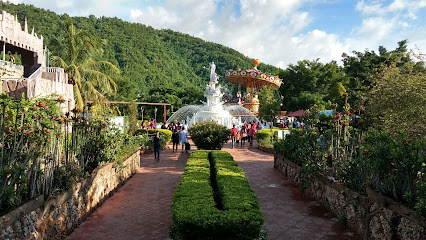
Assam State Museum
Explore Assam's vibrant history and culture at the State Museum in Guwahati, showcasing ancient artifacts and artistic treasures.
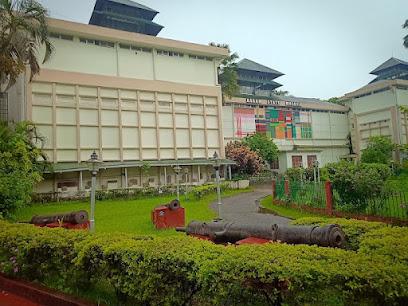
Purva Tirupati Sri Balaji Temple
Experience South Indian spirituality in the heart of Assam at the serene Purva Tirupati Sri Balaji Temple in Guwahati.
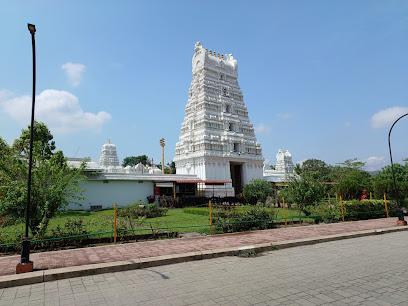
Umananda Temple
Discover Umananda Temple, a serene Shiva shrine on Peacock Island in the Brahmaputra River, Guwahati. A unique blend of spirituality and natural beauty.
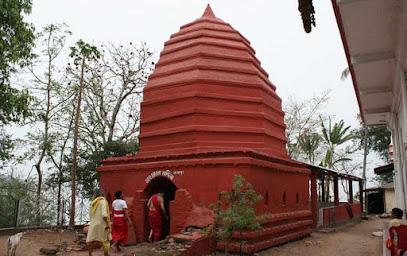
Basistha Temple
A serene Shiva temple and ashram on Guwahati's outskirts, where mythology meets nature's tranquility.
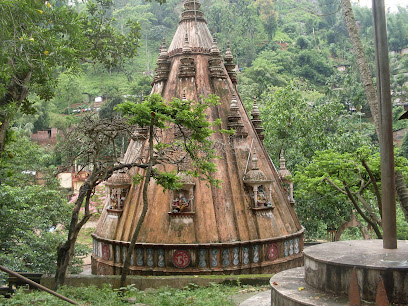
Sri Umananda Temple
Discover serenity at Sri Umananda Temple on Peacock Island, a unique blend of spirituality, history, and Assamese craftsmanship in the heart of the Brahmaputra.
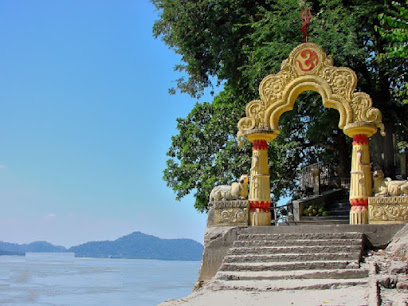
Brahmaputra River Heritage Centre
Explore Assam's heritage at Guwahati's Brahmaputra River Heritage Centre, showcasing history, culture, and the majestic Brahmaputra.
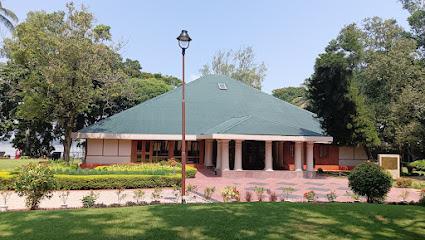
Valley View
Experience breathtaking views of the Brahmaputra River at Valley View, Guwahati's serene escape for nature lovers and photographers.
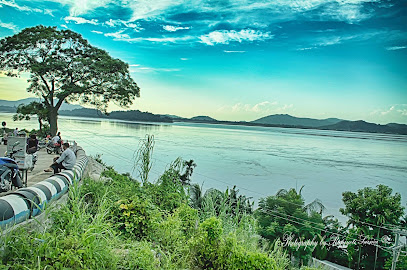
Guwahati Rope Way
Experience Guwahati from above: India's longest river ropeway offering stunning views of the Brahmaputra and the city.
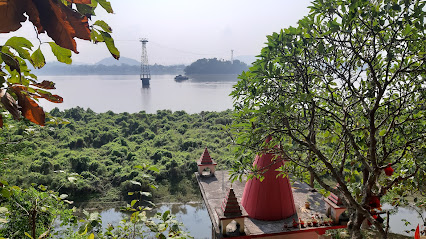
Shukreshwar Ghat/Park
Experience tranquility and spirituality at Shukreshwar Ghat, Guwahati, with stunning Brahmaputra views and rich cultural heritage.
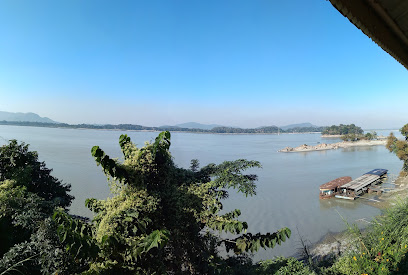
Essential places to dine
Barbeque Nation
Discover the ultimate barbecue buffet experience at Barbeque Nation in Guwahati, where flavorful Indian cuisine meets interactive dining.
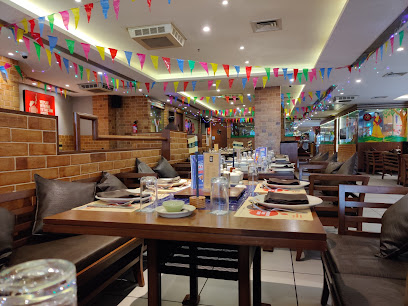
Mughal Garden
Experience authentic Mughlai cuisine at Mughal Garden in Guwahati - a perfect family dining destination amidst serene hills.
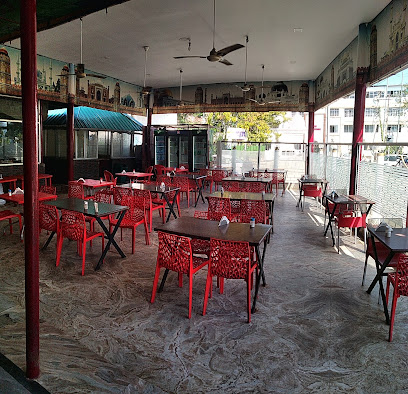
Kalita Spectrum
Discover Kalita Spectrum in Guwahati for a unique blend of Continental, European, and Indian fine dining experiences that will delight your palate.
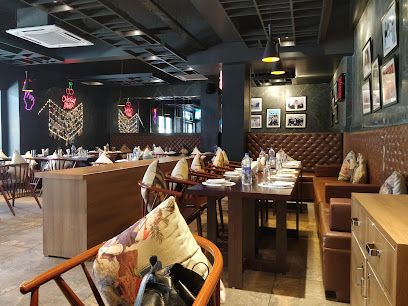
খৰিকা
Discover the rich flavors of Assamese cuisine at খৰিকা in Guwahati – a delightful culinary journey awaits you!
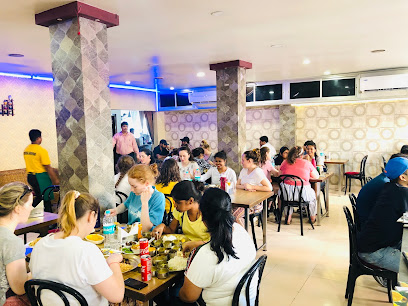
Chennai Kitchen
Discover authentic South Indian vegetarian delights at Chennai Kitchen - your culinary gateway in Guwahati.
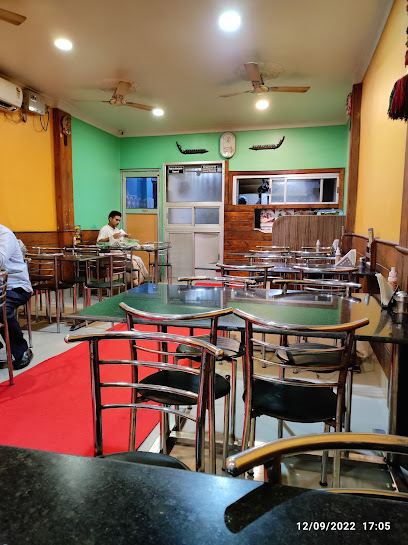
11th Avenue Cafe Bistro
Savor delightful continental cuisine at 11th Avenue Cafe Bistro in Guwahati – where every meal becomes a cherished memory.
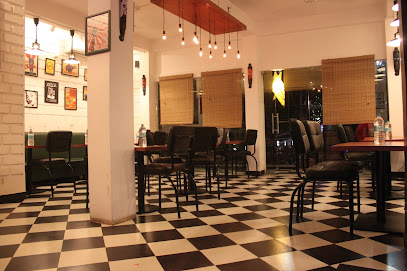
4 Seasons Restaurant
Experience diverse flavors at 4 Seasons Restaurant in Guwahati - where family-friendly dining meets exquisite cuisine.
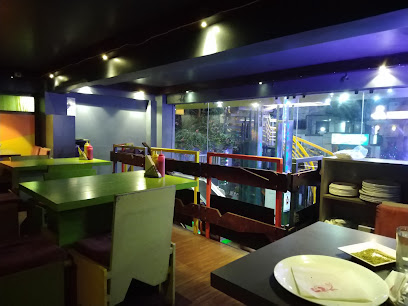
Recipes Train Restaurant
Discover exquisite North Indian cuisine at Recipes Train Restaurant in Guwahati – where every meal is a celebration of flavors.
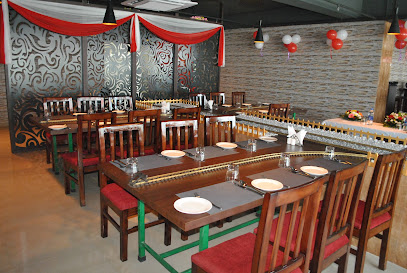
Gam’s Delicacy Restaurant
Experience authentic Assamese cuisine blended with Chinese influences at Gam’s Delicacy Restaurant in Guwahati.
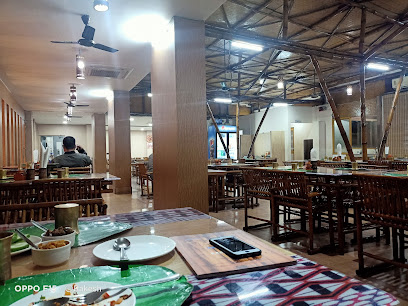
Paradise Restaurant
Discover the authentic flavors of Assamese cuisine at Paradise Restaurant in Guwahati, where tradition meets family-friendly dining.
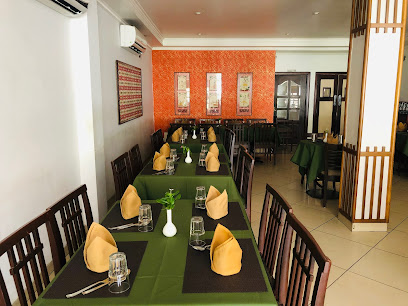
Olive Garden Rooftop Restro Cum Bar
Dine under the stars at Olive Garden Rooftop Restro Cum Bar in Guwahati - where culinary excellence meets breathtaking views.
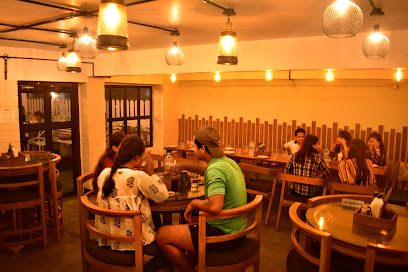
Gam's Delicacy Restaurant
Experience authentic Indian and North Eastern cuisine at Gam's Delicacy Restaurant in Guwahati - where tradition meets flavor.
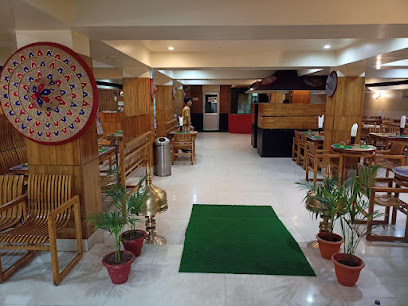
Terra Mayaa
Discover Terra Mayaa - A Culinary Oasis in Guwahati Offering Authentic Indian Cuisine & Lively Nightlife.
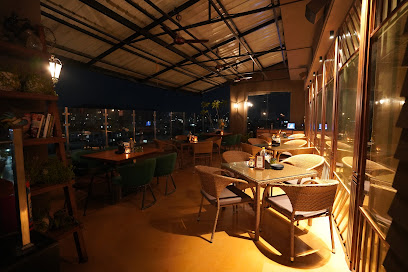
Michinga Restaurant
Discover authentic Assamese cuisine at Michinga Restaurant - where tradition meets flavor in every bite.
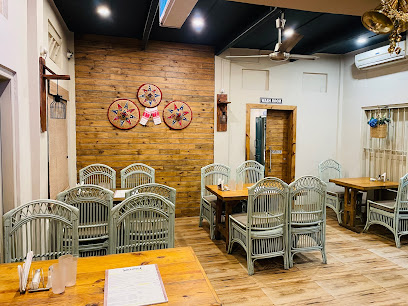
Sagar Ratna
Discover the flavors of India at Sagar Ratna in Guwahati – where every meal is a delightful experience for families and food lovers alike.
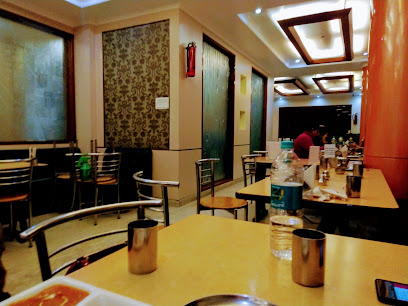
Markets, malls and hidden boutiques
ROODRAKSH MALL
Discover a vibrant shopping experience at Roodraksh Mall, Guwahati: your ultimate destination for retail therapy and entertainment.
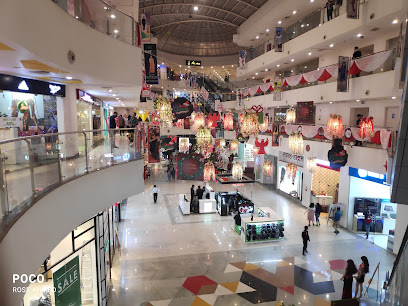
Fashion Factory
Explore the vibrant Fashion Factory in Guwahati, your go-to destination for trendy clothing and stylish accessories for all occasions.
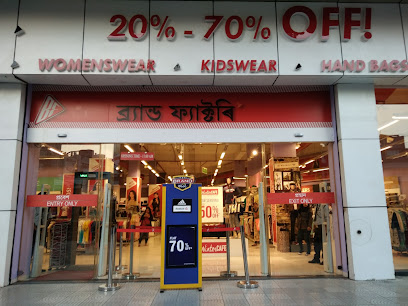
Sohum Emporia
Discover the vibrant shopping and dining experience at Sohum Emporia, the premier shopping mall in Guwahati, Assam.
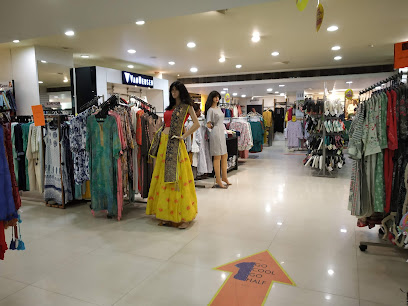
Shoppers Stop
Explore the ultimate shopping experience at Shoppers Stop in Guwahati, a diverse department store featuring fashion, accessories, and lifestyle products.
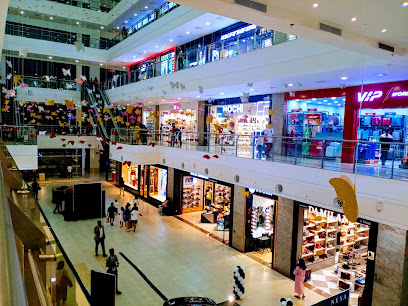
Pragjyotika - Assam Emporium
Explore the essence of Assamese artistry at Pragjyotika - Assam Emporium, a treasure trove of handcrafted textiles and unique local crafts.
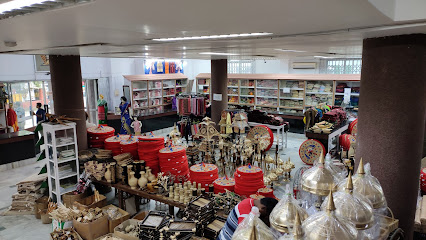
Sohum Shoppe
Discover the best of local and international fashion at Sohum Shoppe, the ultimate shopping destination in Guwahati, Assam.
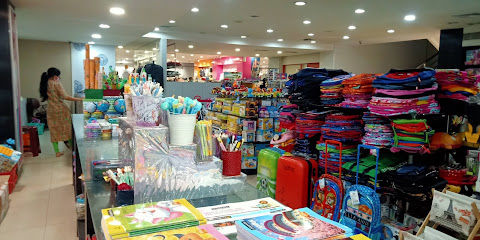
Pantaloons (Roodraksh Mall, Guwahati)
Discover the latest trends in fashion for the whole family at Pantaloons in Roodraksh Mall, Guwahati – a shopping paradise you can't miss!
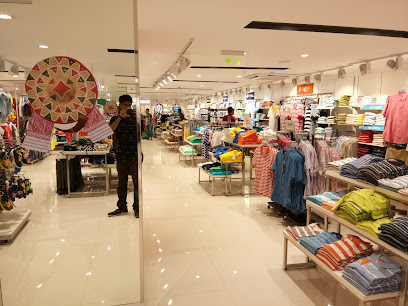
Lifestyle Stores
Explore Lifestyle Stores in Guwahati for a diverse range of gifts, clothing, and unique shopping experiences that reflect local culture.
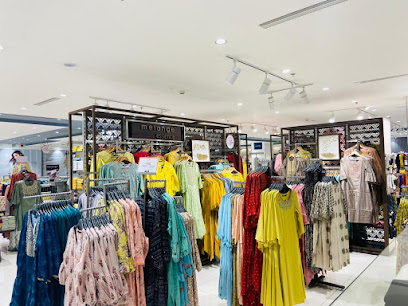
Fabindia, GS Road, Guwahati
Explore Fabindia in Guwahati for exquisite Indian clothing that blends tradition with modern fashion, celebrating local artisans and sustainable practices.
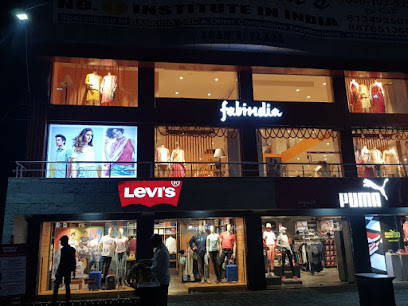
Prodopia - Personalised & Corporate Gifts
Explore the charm of Guwahati with unique gifts from Prodopia, your go-to shop for personalized and corporate treasures.
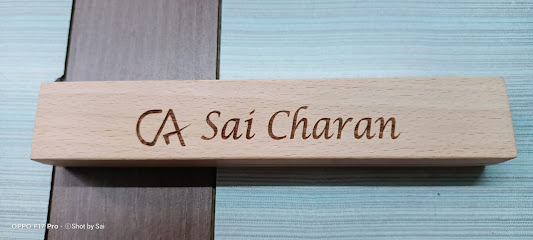
Shahnaz Fashion (Since 1998)
Discover exquisite Assamese fashion at Shahnaz Fashion, a boutique in Guwahati offering custom tailoring and stylish outfits since 1998.
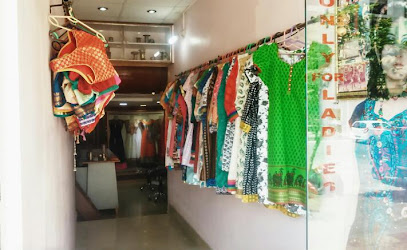
L P Square
Discover unique gifts and local handicrafts at L P Square, a charming gift shop in Guwahati's Fancy Bazaar, reflecting Assam's rich heritage.
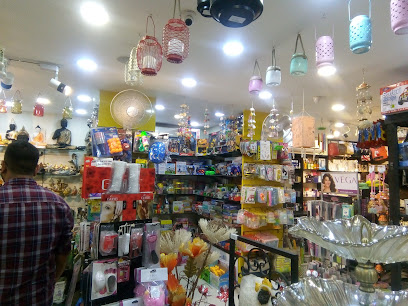
Archies Gallery
Discover the charm of Archies Gallery in Guwahati, a delightful gift shop filled with unique souvenirs and heartfelt treasures.
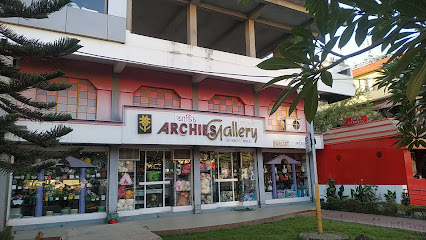
Bonkers Corner Store Guwahati Assam
Discover fashion at Bonkers Corner Store in Guwahati, where trendy casual clothing meets the vibrant spirit of Assam's youth culture.

Momi's Wardrobe
Explore Momi's Wardrobe in Guwahati for unique fashion that combines contemporary style with traditional Assamese craftsmanship.
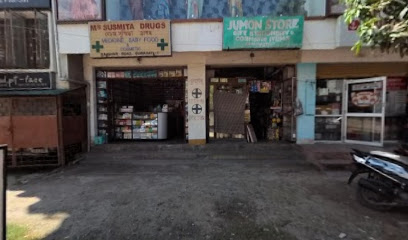
Essential bars & hidden hideouts
Terra Mayaa
Experience the vibrant nightlife of Guwahati at Terra Mayaa - where exquisite Indian cuisine meets expertly crafted cocktails in a lively atmosphere.
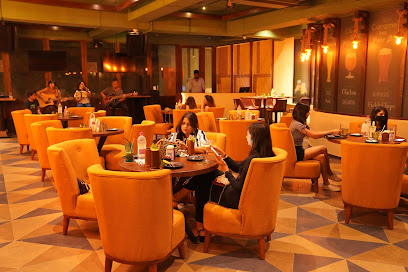
DUNKIN OZA
Dunkin Oza: A lively pub and cocktail bar in Guwahati, blending local flavors with an electrifying nightlife experience.
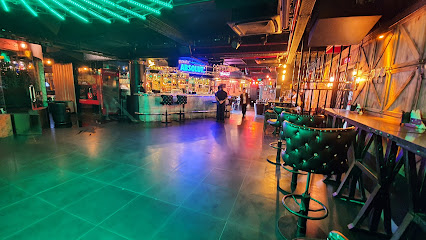
EXORO The Rooftop Pub
Discover the vibrant atmosphere of EXORO The Rooftop Pub, where stunning views, delicious food, and lively entertainment converge in Guwahati.
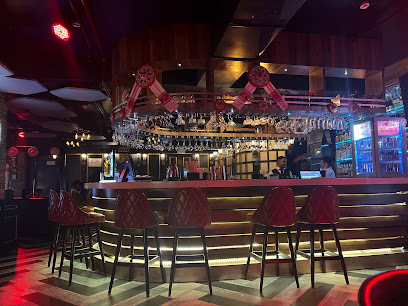
Café Hendrix
Experience the vibrant culture of Guwahati at Café Hendrix, where live music meets tantalizing cuisine in a lively atmosphere.
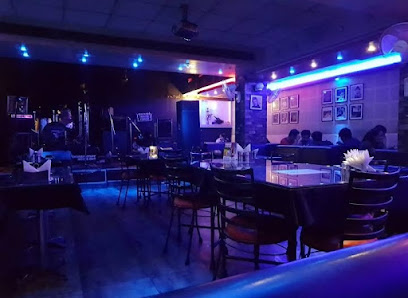
Bulls & Beers, MRP Bar
Discover the vibrant nightlife and exquisite cuisine at Bulls & Beers, MRP Bar in Guwahati – the perfect blend of dining and entertainment.
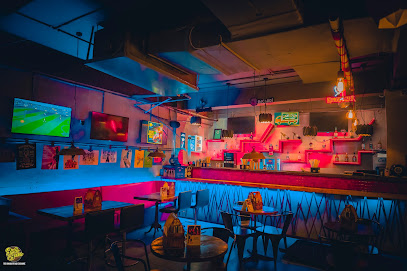
G-ADDA
Discover the culinary charm of G-ADDA, a vibrant gastropub in Guwahati, blending local flavors with global cuisine in a lively atmosphere.
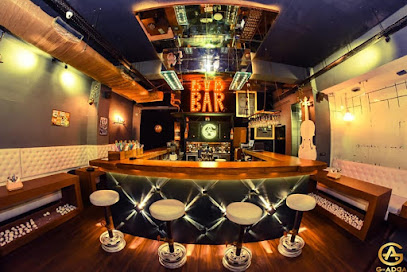
The Whiskey Bar & Grill
Experience the best of Guwahati's culinary scene at The Whiskey Bar & Grill, where great food and an extensive drink menu await.
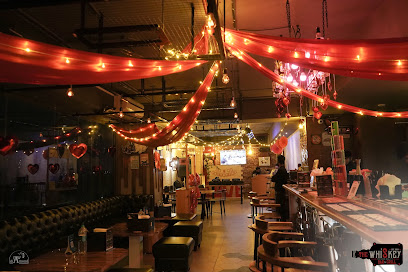
Urban Mantra Zoo Road
Discover the vibrant atmosphere of Urban Mantra, Guwahati's top lounge offering live music, delicious cuisine, and a lively nightlife experience.
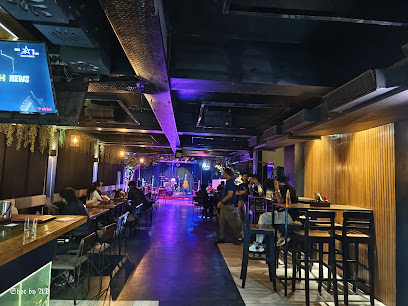
DROP City Night Lounge - Terrace Pub, Bar & Restaurant in Guwahati
Discover Guwahati's nightlife at DROP City Night Lounge, a rooftop bar and restaurant with stunning views, delicious food, and vibrant atmosphere.
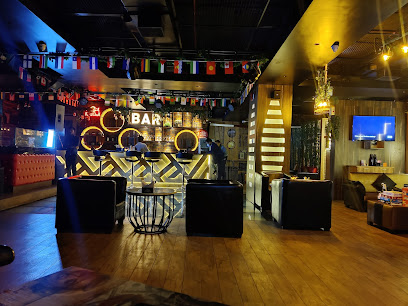
Spectrum Bar
Discover the lively atmosphere and diverse drink selection at Spectrum Bar in Guwahati, where unforgettable nights await.
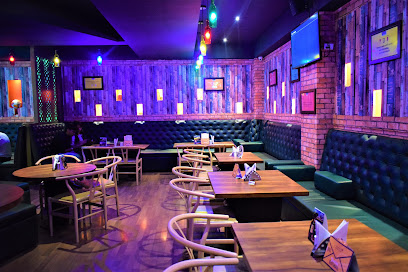
SAQUE BAR
Discover the vibrant nightlife of Guwahati at SAQUE BAR, where great drinks and a lively atmosphere await every visitor.
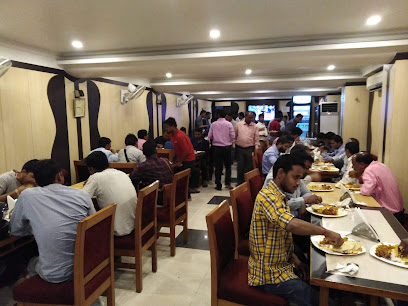
Roxy Bar
Discover the vibrant nightlife and unique cocktails at Roxy Bar, a must-visit spot in Guwahati for a memorable evening experience.
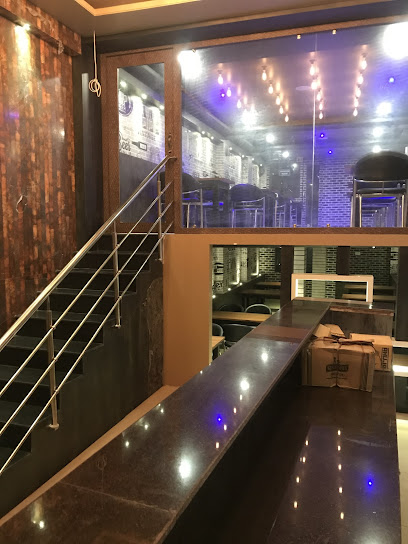
Indralay Bar
Experience the vibrant nightlife of Guwahati at Indralay Bar, where delightful drinks meet a lively atmosphere.
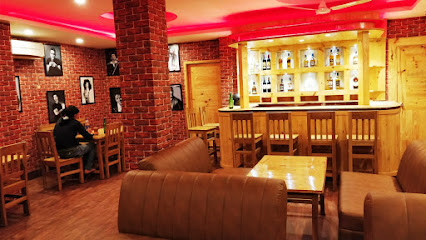
Saki Bar
Experience the vibrant nightlife at Saki Bar in Guwahati, where traditional Assamese flavors meet modern bar culture.
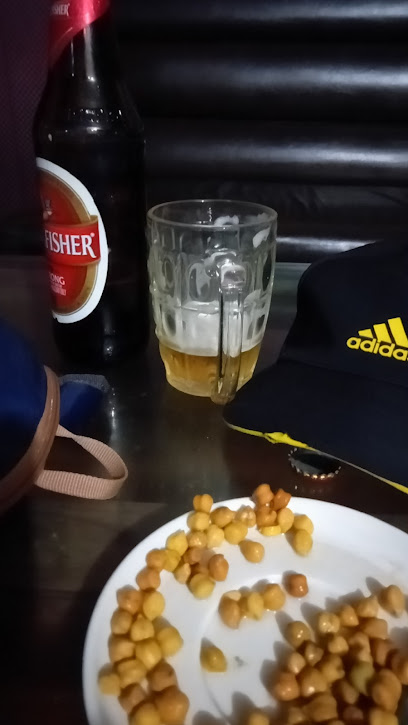
Local Phrases
-
- Helloনমস্কাৰ
[Nomaskār] - Goodbyeবিদায়
[Bidāy] - Yesহয়
[Hôy] - Noনহয়
[Nôhôy] - Please/You're welcomeঅনুগ্ৰহ/স্বাগতম
[Ônugroh/Shwāgôtom] - Thank youধন্যবাদ
[Dhônyôbād] - Excuse me/Sorryক্ষমা কৰক/দুঃখিত
[Kshôma kôrôk/Duhkhît] - How are you?আপুনি কেমন আছে?
[Ôpuni kemôn achô?] - Fine. And you?ভাল আছো। আৰু তুমি?
[Bhāl achô. Āru tumi?] - Do you speak English?আপুনি ইংৰাজি বলে?
[Ôpuni iṅraji bôle?] - I don't understandমোক বুজাব নহয়
[Môk bujāb nahôy]
- Helloনমস্কাৰ
-
- I'd like to see the menu, pleaseঅনুগ্ৰহ কৰি মেনু দেখাব
[Ônugroh kôri menû dekhāb] - I don't eat meatমই মাংস খায় নহয়
[Môi māṅs khāy nahôy] - Cheers!চিয়াৰ্স!
[Chiyôrs!] - I would like to pay, pleaseঅনুগ্ৰহ কৰি মোক মানি দিব
[Ônugroh kôri môk māni dib]
- I'd like to see the menu, pleaseঅনুগ্ৰহ কৰি মেনু দেখাব
-
- Help!সহায়
[Sôhāy] - Go away!চলি যাওক!
[Xôli zāuk!] - Call the Police!পুলিচ বোৰ কৰক!
[Pulich bôr kôrok!] - Call a doctor!ডাক্তৰ বোৰ কৰক!
[Dāktôr bôr kôrok!] - I'm lostমই হাৰিব পৰিছো
[Môi hārib parichô] - I'm illমই অসুস্থ আছো
[Môi ôsusth achô]
- Help!সহায়
-
- I'd like to buy...মই কিনিব বোৰ
[Môi kinib bôr] - I'm just lookingমই কেৱল চাবছো
[Môi kewôl xābôxô] - How much is it?এটা মুল্য কিয় হৈছে?
[Eṭā môlô kiy hôichô?] - That's too expensiveএইটো খুবই মহঙ্গা হৈছে
[Eiṭô khubôi môhônga hôichô] - Can you lower the price?মূল্য কম কৰিব পাৰেনে?
[Môlô kôm kôrib pārenē?]
- I'd like to buy...মই কিনিব বোৰ
-
- What time is it?কি সময় হৈছে?
[Ki sômôy hôichô?] - It's one o'clockএটা এখন একটাই হৈছে
[Eṭā êkhôn êkôtai hôichô] - Half past (10)দহাই পাৰা
[Dôhai pārô] - Morningসোঁওজা
[Sônjô] - Afternoonদুপৰ
[Dupôr] - Eveningসন্ধ্যা
[Sôndhyā] - Yesterdayকাল
[Kāl] - Todayআজি
[Ôzi] - Tomorrowকালি
[Kāli] - 1এক
[Êk] - 2দুই
[Dui] - 3তিনি
[Tini] - 4চাৰ
[Char] - 5পাঁচ
[Pāmcha] - 6ছয়
[Sôi] - 7সাত
[Sāt] - 8আঠ
[Ôth] - 9নয়
[Nôy] - 10দহ
[Dôh]
- What time is it?কি সময় হৈছে?
-
- Where's a/the...?এতিয়াই...টা/থাকে?
[Etiyāi...tā/thākê?] - What's the address?ঠিকনামা কিয় হৈছে?
[Thiknāmā kiy hôichô?] - Can you show me (on the map)?মুখ্যমন্ত্ৰী দেখাব পাৰে?
[Mukhyômantree dekhāb pāre?] - When's the next (bus)?পৰৱাচ গাড়ী কি সময়ত আহিছে?
[Pôrôwāch gāṛi ki sômôyt ahichê?] - A ticket (to ....)টিকেট (.... লৈ)
[Tiket (.... Lôi)]
- Where's a/the...?এতিয়াই...টা/থাকে?
History of Guwahati
-
Guwahati, situated along the banks of the mighty Brahmaputra River, is believed to be one of the oldest continuously inhabited cities in India. According to Hindu mythology, it was known as 'Pragjyotishpura', meaning the 'City of Eastern Astrology'. The city is also associated with the epic Mahabharata; it is said that the Pandavas visited the Kamakhya Temple on Nilachal Hill to seek blessings.
-
One of the most revered Shakti Peethas in India, the Kamakhya Temple, stands as a testament to the city's profound spiritual heritage. Built in the 8th century by the Mlechchha dynasty and later renovated by the Koch King Naranarayan in the 16th century, the temple attracts thousands of pilgrims annually. The Ambubachi Mela, held in June, is a major festival celebrating the goddess Kamakhya's annual menstrual cycle, drawing devotees from across the country.
-
In the 17th century, the Ahom Dynasty, which ruled Assam for six centuries, faced a significant threat from the Mughal Empire. The Battle of Saraighat in 1671, fought on the Brahmaputra River, was a decisive moment in Indian history. Led by the brilliant strategist Lachit Borphukan, the Ahoms defeated the Mughals, ensuring Assam's independence. This battle is commemorated by the Lachit Divas on November 24 every year.
-
With the advent of British colonial rule in the 19th century, Guwahati began to transform from a historical city to a modern urban center. The British established infrastructure such as railways, educational institutions, and administrative buildings. Cotton College, founded in 1901, became a notable center for higher education. Post-independence, Guwahati continued to grow, becoming the largest city in Assam and the gateway to the northeastern states of India.
-
Guwahati is a vibrant cultural hub, home to diverse communities and traditions. The city celebrates numerous festivals with great fervor, including Bihu, the Assamese New Year, which marks the agricultural calendar and involves traditional music, dance, and feasting. The Brahmaputra River Festival, held annually, showcases the cultural diversity and heritage of the region through performances, boat races, and exhibitions.
-
Nestled amidst the lush greenery of the Eastern Himalayas, Guwahati is surrounded by natural beauty and rich biodiversity. The Kaziranga National Park, a UNESCO World Heritage Site, is located nearby and is renowned for its population of one-horned rhinoceroses. The Pobitora Wildlife Sanctuary, closer to the city, also offers a haven for wildlife enthusiasts. The city's numerous hills, parks, and riverbanks provide ample opportunities for nature lovers to explore and enjoy.
Guwahati Essentials
-
Guwahati is well-connected by air, rail, and road. The Lokpriya Gopinath Bordoloi International Airport (GAU) is the primary airport, located about 20 kilometers from the city center. It has regular flights to major Indian cities and some international destinations. Guwahati Railway Station is a major hub with trains connecting to various parts of India. For road travel, National Highways 27 and 17 link Guwahati to other cities. Buses and taxis are readily available for intercity travel.
-
Within Guwahati, you can use a variety of transportation options. Auto-rickshaws and cycle-rickshaws are common for short distances. Ola and Uber services are also available. The city has a network of city buses operated by Assam State Transport Corporation (ASTC) and private operators. For a more local experience, try the shared tempo services. Renting a car is also an option if you prefer more flexibility.
-
The official currency is the Indian Rupee (INR). Credit and debit cards are widely accepted in hotels, restaurants, and large stores. However, it is advisable to carry cash for small purchases and in rural areas. ATMs are plentiful throughout the city, but it's good practice to withdraw a sufficient amount before heading out for the day.
-
Guwahati is generally a safe city for tourists, but like any urban area, it's important to be cautious. Avoid isolated areas after dark and be wary of pickpockets in crowded places. Areas like Paltan Bazaar and Fancy Bazaar are bustling but can be hotspots for petty crimes targeting tourists. Always keep your belongings secure and stay vigilant.
-
In case of emergency, dial 100 for police assistance and 108 for medical emergencies. Guwahati Medical College Hospital (GMCH) and Apollo Hospitals are among the major medical facilities. It's wise to have travel insurance that covers medical and other emergencies. Pharmacies are widely available for minor health issues.
-
Fashion: Do dress modestly, especially when visiting religious sites like temples. Avoid wearing revealing clothing. Religion: Do respect local customs and traditions. Always remove your shoes before entering a temple. Public Transport: Do be courteous and offer your seat to elders. Don’t eat or drink on public transport. Greetings: Do greet people with a 'Namaste' or a handshake. Eating & Drinking: Do try local Assamese cuisine and accept food offerings graciously. Don’t refuse hospitality, as it is considered impolite.
-
To experience Guwahati like a local, visit the local markets such as Fancy Bazaar and Pan Bazaar for a variety of goods and street food. Engage with locals, who are generally friendly and eager to share insights about the city. Don't miss a boat ride on the Brahmaputra River, especially around sunset. For a unique cultural experience, visit during the Bihu festival, which showcases traditional Assamese music, dance, and cuisine.
Trending Landmark in Guwahati
-
Assam State Zoo cum Botanical Garden
-
Maa Kamakhya Temple
-
Srimanta Sankaradeva Kalakshetra
-
Nehru Park
-
Shraddhanjali Kanan
-
Accoland
-
Assam State Museum
-
Dighalipukhuri Park
-
Purva Tirupati Sri Balaji Temple
-
Sri Umananda Temple
-
Brahmaputra River Heritage Centre
-
Dr. Bhupen Hazarika Samadhi Kshetra
-
Gandhi Mandap
-
Deepar Beel Wildlife Sanctuary
-
ISKCON Guwahati
Nearby Cities to Guwahati
-
Things To Do in Shillong
-
Things To Do in Sylhet
-
Things To Do in Trashigang
-
Things To Do in Mongar
-
Things To Do in Jakar
-
Things To Do in Trongsa
-
Things To Do in Bumthang
-
Things To Do in Itanagar
-
Things To Do in Wangdue Phodrang
-
Things To Do in Punakha
-
Things To Do in Phuentsholing
-
Things To Do in Kohima
-
Things To Do in Rangpur
-
Things To Do in Thimphu
-
Things To Do in Agartala


















